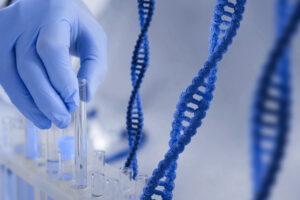Egg donation can help couples conceive who may not be able to use their own eggs, such as women who have a natural menopause or premature ovarian failure, or other infertility issues. Donors must undergo rigorous testing, including a full medical and family history, physical exam and extensive screening for blood-borne diseases.
Before you apply, ask questions to ensure that you understand the process thoroughly.
Choosing a Donor
There are many considerations to make when choosing an egg donor. Most importantly, you will want to select an egg donor that is healthy and meets all of the program’s requirements. Donors go through rigorous medical screening including a pelvic exam, an ultrasound, and blood work to test for hepatitis B, C, HIV, syphilis, and other sexually transmitted diseases. Donors must also meet age and other criteria set by the program before they can be considered for a cycle.
Many intended parents will have a specific physical quality that they are looking for in their egg donor such as hair color, eye color, or other facial features. Other qualities that intending parents may consider include educational level, career path, or lifestyle habits. Egg donors are required to provide a statement outlining their motivations and thoughts on the donation process, which can be helpful to intending parents in making their selection. Some intended parents may prefer to use a first-time egg donor while others may want to choose a repeat donor.
A direct (known) egg donor arrangement is an option in which a friend or family member agrees to donate her eggs. This can allow for a more personalized approach to the process as well as give the child a lifelong relationship with their donor. Regardless of the arrangement, however, the egg donor will still have to go through the same medical and psychological evaluations as an anonymous donor.
Finding a Donor
Many egg donors are anonymous, meaning that they do not provide their name to the intended parents. This allows the couple to remain private and not worry about legal issues that may arise if the donor was to have a relationship with the child born from her donation, such as custody or child support. The donor is assigned a code number that is used for all blood studies and cervical cultures. The surgical record lists this number rather than her name, and this code is only known to Duke team members and staff.
The egg donor is required to undergo a medical screening and physical exam before she begins her treatment. During this process, she is checked for serious medical and genetic problems, anemia and a variety of other tests. The donor will be required to take several rounds of fertility medications during the process and her body is closely monitored.
If the donor is a known person, such as a relative or close friend, then they must be approved for the program by the reproductive endocrinologist. This is done to ensure that the donor understands the process and feels comfortable with the emotional and psychological aspects of being an egg donor. This is why most programs have a mental health professional involved in the screening process.
Embryo Transfer
Embryo transfer is the process of placing an embryo into your uterus. You will likely feel some tenderness in the uterus after this procedure, and you may experience early pregnancy symptoms like morning sickness. Your care team will instruct you on how to respond to these symptoms and will monitor your progress closely.
During the donor selection process, intended parents typically search for donors with specific traits that they would like their child to share, such as eye color or hair texture. They also review the medical history of each egg donor and examine her family history for a number of conditions, such as mental illness or genetic disorders.
In addition to a detailed physical exam, a potential egg donor will undergo a psychological evaluation and an infectious disease panel. A gynecologist or OBGYN will oversee the examination and ensure that the donor can produce eggs that are safe to store and use in the IVF process.
Some intended parents also look for potential donors with similar lifestyles and interests, such as hobbies or education level. For example, if you are interested in music or theater, you can narrow your options for an egg donor by searching databases by musical or performance skills. If you want to keep in touch with your resulting child, you can also search for donors who are open to communication.
Pregnancy
As with any pregnancy, there are risks associated with using donor eggs. You must follow your doctor’s advice for diet, exercise and ongoing health care to ensure a healthy pregnancy. You may also need to take additional prenatal vitamins or folic acid supplements. You can also expect to experience some of the same symptoms as a natural pregnancy, including bloating, breast tenderness and fatigue.
Once the ovarian follicles have reached a sufficient size, fertility medications will be used to stimulate each one into growing several eggs at once. A transvaginal ultrasound will be performed to visualize the follicles and egg-containing follicles, and when one is at the correct size, an incision is made through the vagina. The egg is removed with a needle, and semen is then added to fertilize the embryo(s).
The fertilized embryos will be implanted into your uterus three to five days after the in vitro fertilization (IVF) procedure. Once the implantation has taken place, hormone medicines will be administered to help maintain the pregnancy.
It is important to remember that although you are carrying the child conceived by donor eggs, you will still have a connection with your baby through cell exchanges that occur during pregnancy. This is known as fetal maternal microchimerism. In fact, there is scientific evidence that you could have cells from the fetus in your body for a decade or more after the birth of your child.





